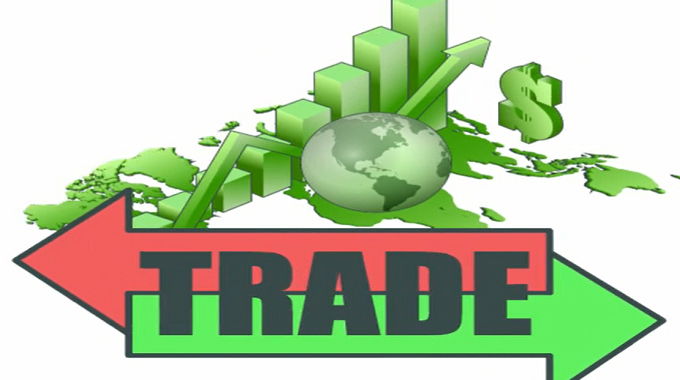Editorial Comment: Free trade needs more to be a gateway to wealth

Africa has a population of 1,2 billion, about a seventh of the world’s people, with the demographic advantage that most are in the productive age range, and more than its fair share of the world’s resources: so it is difficult to understand why it is the poorest continent.
Part of the problem is that, despite most countries freeing themselves from the colonial empires long before most Africans alive today were born, far too many trade and other ties are with the former colonial powers or with other countries outside Africa, rather than with neighbours and each other, .
This does not mean that all trade with the outside world is inherently wrong, only that the proportion is far too high and that far too much of this trade is of raw materials and unprocessed primary products being exported out of Africa and manufactured and processed products being imported. We can even get the peculiar situation that we export raw materials and then import the finished goods made from those same raw materials.
Admittedly, like most parts of the developing world, Africa is short of capital and in many countries at independence education levels were low.
The second problem has largely been sorted out with most African countries having been pushing education, sometimes in the wrong direction but still every gain is a gain, leaving the lack of capital as the prime inherent bottleneck.
But there are a lot of other bottlenecks, mainly those we impose on ourselves. Some are institutional, such as treating all imports equally and using them as a source of tax income, regardless of whether the imports come from the next door country or from the other side of the world. Some are cultural, a belief that something made outside Africa must be better than something made in Africa. And some just show crooked thinking, a reluctance to push innovation and even a reluctance to look at licensing technology where appropriate.
The African Continental Free Trade Area is a necessary step, and the bureaucrats need to be moving steadily to convert the concept into the reality with compilation of the huge “book of rules” that is required, but it is not a sufficient step to create flourishing free trade or any major increase in trade across the continent.
But practical steps are now coming forward, with the Afreximbank, set up with the primary purpose of providing the trade finance to accelerate intra-Africa trade, taking the lead. It has not only bankrolled the latest Intra-Africa Trade Fair in Durban but is assembling a pool of US$40 billion to grease the wheels of trade.
Trade finance is basically short term lending, to finance the production of goods needed to fulfil orders and get these moved to the final buyer, with the payment received used to liquidate the debt. It covers that critical gap between order and payment which can be several weeks or even a few months. Without it, a producer finds it very hard to assemble the order that sales staff have secured. With it a producer can promise delivery within the contract time. Banks were originally set up to do this vital work.
The trade fair itself is also important. Few people in Africa know what is made or produced in other countries.
Even on-line platforms, while useful, have their limitations. Potential buyers like to see the goods, check out the quality, ask the questions, and even the flashiest website cannot do that.
One important part of all free trade areas, and one that will be critical for Africa, is that of rules of origin. Most free trade areas like to ensure that the products are actually produced in the area, with very high percentages of the raw materials coming from within the area. No one needs middlemen or even final assembly or mixing of materials and parts imported from outside the region. Obviously percentages by value and quantity of external materials and parts varies according to product, but the basic concept is high levels of trade-area origin.
But the ownership of the factories, and the origin of the machinery or technology used in production, is not regulated. So, to take one example, if a global truck company sets up a factory within a free trade area, and supplies the equipment and designs but uses steel and other materials made within the free-trade area, the final truck is 100 percent area-origin. This encourages global corporations to invest so that they meet local origin rules, and is vital to ensure that investment flows speed up. Having a continental market makes that investment viable, which a little country might not be.
You also get a lot more contract manufacturing. This was a major component in China’s incredibly fast industrialisation, with many foreign companies contracting with a Chinese manufacturer to make exactly what their customers wanted.
And as China has shown, this also creates a huge base for local design and manufacture which will become ever more dominant. The fact that China, as a single nation, has more than 1,4 million people with high education levels and a huge free-trade area shows what can be done if you want to move from poverty to wealth.
In his remarks at the opening of the Intra Africa Trade Fair in Durban, President Mnangagwa offered some of the fruits of our own national programmes.
The first was to start with what we have, what our own farmers and own miners produce. It might seem obvious but too many people still look at importing every bit of raw material and most of the parts.
The second was more important, and looks at the cultural shift required and overcoming what can be seen as a lack of self-confidence in Africa. A continent of 1,2 million people with a fairly low median age clearly has a lot of smart hard-working people, as the growing number of Africans now working in high-tech companies around the world shows.
The President wanted that potential converted into reality. Under a hard push from the President since he took office, Zimbabwe has been converting to meet that need, with a revolution sweeping the educational world and every encouragement, including some seed money, coming from Government to harness that potential in innovating and creating new businesses.
While inward investment and technology transfer is important, in fact vital, we cannot sit back and wait for someone else to build the factories and create the jobs. We need to do a lot of that ourselves, and that requires both the cultural shift and the practical support of governments in technical education and smart investment.
So, what we have is a free trade area in its early stages opening doors.
That must be backed by cultural shifts and by a swathe of national programmes that harness the potential of Africa’s people, especially the youth as President Mnangagwa noted, to convert those opening doors to gateways to wealth.









Comments